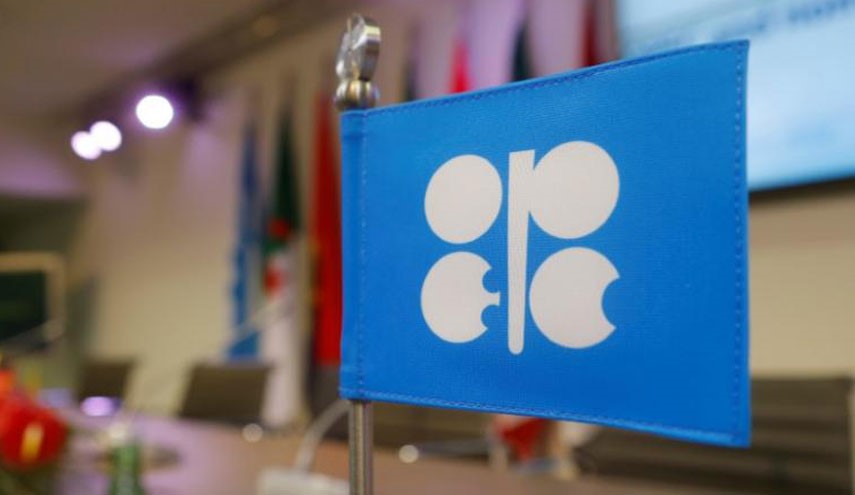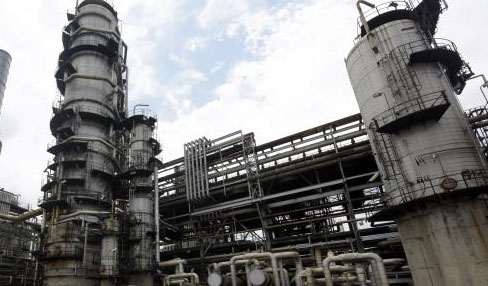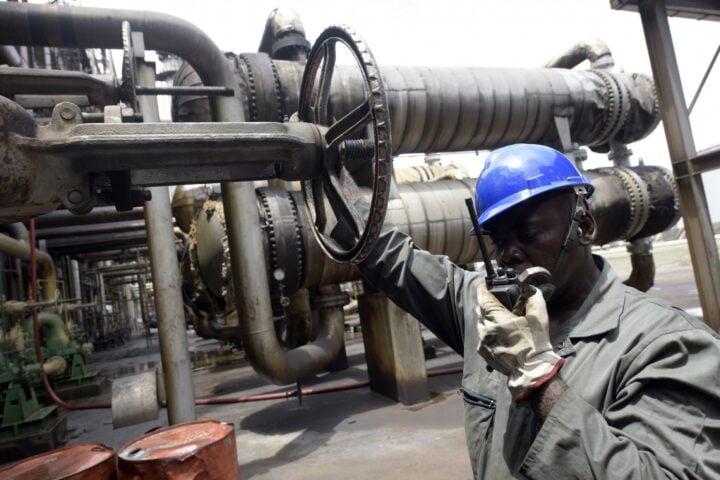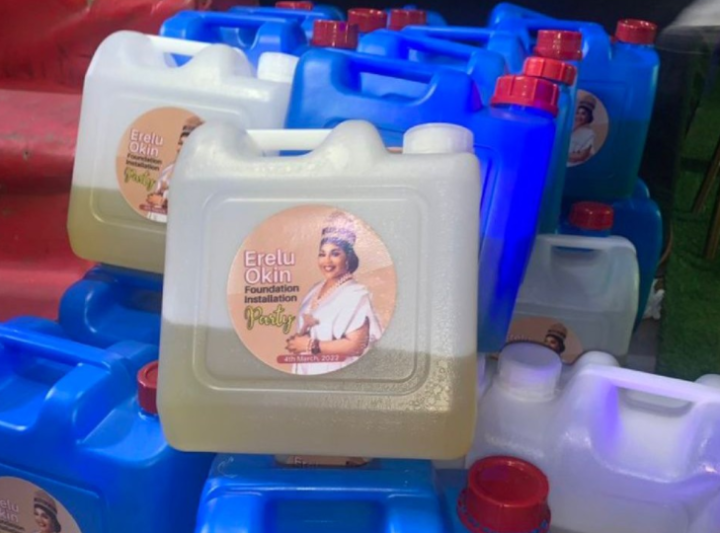A worker at an oil refinery in Port Harcourt, Rivers state, Nigeria, September 16, 2015. Nigeria's state-run oil corporation has reopened the refinery at Port Harcourt more than a month after it was closed due to attacks on its pipelines.
PIUS UTOMI EKPEI/AFP/GETTY IMAGES
Crude oil prices have surged above $100 a barrel on coordinated production quotas by the Organisation of the Petroleum Exporting Countries (OPEC) and Russia’s invasion of Ukraine.
Oil price generally refers to the spot price of a barrel of oil and is primarily driven by supply and demand.
Factors such as modifications in the supply-demand curve, production disruptions and geopolitical tensions ordinarily affect the global oil outlook.
Two weeks ago, OPEC and its allies, known as OPEC+, agreed to increase production by 400,000 barrels per day, citing geopolitical tensions as the reason for rising oil prices.
Advertisement
Nigeria, Africa’s largest economy, doubles as a prominent oil-producing nation, topping the oil producers’ list on the continent.
Despite being the top oil producer, it does not process its crude oil due to non-functional refineries.
As such, it exports crude oil and exchanges it for refined petroleum products through the Direct Sale, Direct Purchase (DSDP) scheme.
Advertisement
The scheme is a contractual agreement, carried out through third parties, to meet Nigeria’s petrol needs.
Because of this development, Nigeria is vulnerable to the volatility of global oil prices as it is a net importer of refined petroleum products — a status which “intends to change” with the operationalisation of the Dangote Refinery by “third quarter of 2022”.
WHY IS IT SO?
The situation is different and compounded for Nigeria because of the decade-long petrol subsidy.
Advertisement
Consequently, the higher oil prices at the international market, the higher the subsidy burden incurred on importing refined petroleum products.
TheCable had reported that petrol subsidy payments gulped N1.43 trillion in 2021 and N210.38 billion in January 2022 — depleting revenue accrued to the federation account.

Despite these complexities, TheCable looks at three ways Nigeria can benefit from soaring oil prices.
Advertisement
PUMP MORE OIL
In recent months, Nigerian crudes, including Forcados, Bonny Light, Escravos, and Qua Iboe, have witnessed supply disruptions due to operational and technical issues.
Advertisement
With this, Nigeria’s oil production capacity has been declining steadily, pumping below its monthly OPEC output targets.
Nigeria’s monthly OPEC oil production target is about 1.8 million but the country did an average of 1.25 million bpd in February and 1.39 million bpd in January.
Advertisement
This is much lower than the country’s production capacity of about 1.3 million bpd to 1.5 million bpd in 2020 when the COVID-19 pandemic roiled the global oil market and instigated discontinuation of operations in some of the country’s oilfields.
Timipre Sylva, minister of state for petroleum resources, had said poor investment and the exit of oil majors are affecting Nigeria’s inability to meet the oil production quota.
Advertisement
To pump more oil, Nigeria needs to increase capacity, block leakages and loopholes, ensure adequate security and make the sector more attractive through transparency and accountability of policies and funds.
Ademola Adigun, executive vice-president, Metacura Development Initiative, told TheCable that the country cannot pump more oil than its present output because of capacity reasons… but if “it could, it should”.
OVERHAUL OIL SECTOR OPERATIONS
Nigeria’s oil production deficiency does not exist independently. It is prompted by several drawbacks in the sector, including oil theft, oil spills, production disruptions, withdrawal of assets by International Oil Companies (IOCs), and underinvestment.
In February, Renaissance Capital Limited, an investment bank, said the country’s oil sector is exacerbated by challenging operating environments.

“Nigeria’s onshore oil sector is probably one of the most challenging operationally in the industry, with issues such as local opposition, oil spills, militant activity, crude evacuation constraints and logistical bottlenecks,” it noted in a report.
It also mentioned unattractive fiscal terms, limited major project pre-Final Investment Decision (FID) pipeline and divestment as prevailing rationales behind underinvestment in the country.
Oil majors have cited crude oil theft, unfavourable environments, among others, as reasons for withdrawing their investments.
In January, the Nigerian Upstream Petroleum Regulatory Commission (NUPRC) had said the country loses more than 115,000 barrels per day to oil theft and vandalism — valued at about $300 million.
Recently, TheCable reported how indigenous oil producers complained about the negative impact of oil bunkering on their operations.
With these current realities, oil revenue would not be reflective of high oil prices, except the underlying issues impeding optimal production are addressed.
A consistent follow-through in the implementation of the Petroleum Industry Act (PIA), including the restructuring of the upstream, midstream and downstream sectors and the commercialisation of the NNPC, must be achieved.
FIX OIL REFINERIES
For Nigeria’s oil sector, which accounts for about 15 percent of imports in the country, high oil prices would further exacerbate importation expenses and multiply subsidy woes.

But the fixing of oil refineries would help solve the issues around forex supply for importation, high importation costs due to the depreciation of the naira, among others.
As such, the federal government should speed up efforts at revamping the country’s four refineries.
Add a comment






